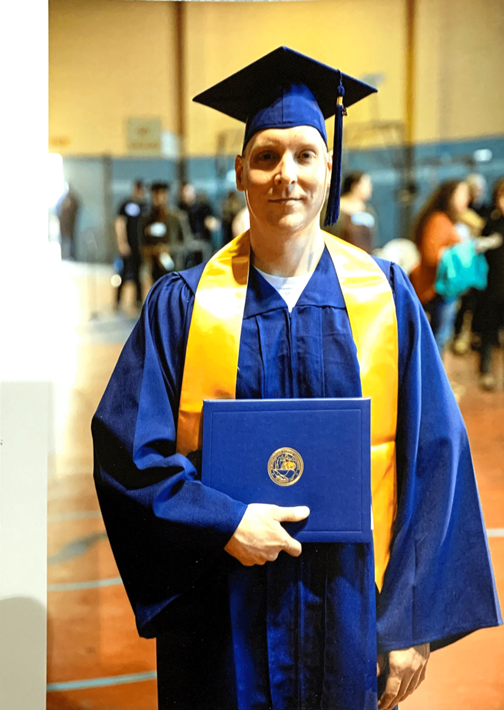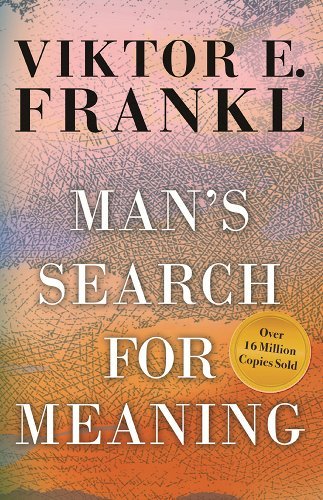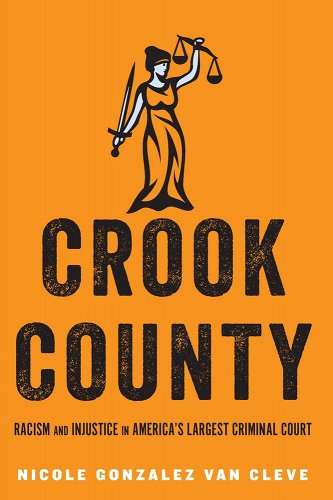THREE QUESTIONS: A Q&A with Joseph Dole, Policy Director, Parole Illinois
The Project…
 Illustrating a Better Way: Art & Animation on the Failure of Deterrence and Need for Community Approaches to Public Safety
Illustrating a Better Way: Art & Animation on the Failure of Deterrence and Need for Community Approaches to Public Safety
Numerous studies have discredited “tough-on-crime” policing and sentencing policies and proven that investment in community-based mental-health, educational, and social programs is much more effective in reducing crime. Unfortunately, however, these academic studies have remained inaccessible to the general public. Illustrating a Better Way will use creative and visually engaging mediums, including infographics and animation, to make the findings of these studies vivid and comprehensible to the general public. By helping people to understand the actual impact of tough-on-crime policies, it will help to mobilize broad public support for policy-changes that shift resources from policing and punitiveness to community welfare.
The Grant Recipient…
Joseph Dole
Location: Currently incarcerated in Illinois
Joseph Dole is an artist, writer, journalist, jailhouse lawyer, and government watchdog. Incarcerated since 1998, he spent nearly a decade of his life in complete isolation at the notorious Tamms Supermax Prison, before intense pressure led to its closure in 2012. Joe is currently serving life without parole and continues to fight his conviction pro se. He has recently uncovered evidence suppressed by the State.
Joe has written numerous articles, essays, poems, and research papers. Two of his policy proposals were catalysts for Illinois legislation. He has won four PEN America Writing Awards for Prisoners, was selected by Eula Biss as the winner of the 2016 Columbia Journal Winter Contest, and has published two books. His artwork has been exhibited throughout the country and he recently earned his bachelor’s degree, with a depth area in critical carceral-legal studies, through Northeastern Illinois University’s University Without Walls program. Joe is currently incarcerated at Stateville Prison; we spoke by phone.
Follow Joseph Dole on Facebook
Q&A with Joseph Dole

Q1: With regards to the criminal legal system, when you imagine a just future, what does it look like?
Joseph Dole: At a bare minimum, a just criminal legal system does several things different than the unjust system we have today.
First, it humanizes, rather than dehumanizes, people who break the law to figure out the root causes of why they broke the law, with an eye geared towards preventing crime.
Second, it spends much less on over policing marginalized communities (which has been shown to not only be inhumane, but also a huge waste of resources), and redirects funds and resources towards ensuring that everyone’s basic needs, such as food, clothing, healthcare (including mental health care), housing, employment, and obtaining a quality education, are met as a part of the crime prevention strategy.
Third, until a complete replacement is found for incarceration, any carceral system should be focused on A) providing people with the skills, tools, and resources necessary to successfully return to “useful citizenship”, which Illinois’ Constitution (Art. I, Sec. 11) states should be the objective; and B) periodically reviewing people to determine if the initial term of incarceration was too harsh and whether that person can be safely released early.
Fourth, any criminal legal system should be based on facts, logic, and what works, rather than our current practice of “othering”, myths, and political hyperbole that serves the interests of politicians and corporations to the detriment of marginalized people’s lives.
Fifth, the criminal legal system should view crime as a breakdown of community and not simply the immorality of an individual, which brings us back to my first two points.
Q2: How do you see harnessing the arts and humanities as important strategies in working toward that future?
JD: We live in an increasingly segregated society. While we may have made some strides in reducing racial segregation, we have become even more segregated politically, economically, and culturally in America. Segregation in any form drastically increases the ease with which we dehumanize others outside of our political, economic, or social spheres. This in turn deteriorates a sense of community at all levels.
The art and humanities are essential to sharing stories of people between various groups, which helps to knit together communities by bringing understanding about other people’s struggles and needs. It is much easier to demonize someone else and not care about their well-being if you are ignorant to their human struggles. The humanities and arts help us to imagine being in other people’s shoes and not to make knee-jerk judgments. They make us more humane.
Art is also an essential tool for activism, which often helps bring about social change.
Therefore, I see both the arts and humanities as essential for not only bringing about a more humane criminal legal system, but for repairing communities, healing the rifts in our social fabric, and preventing crime, extreme poverty, and more.
Q3: What is the most important thing people should know about your work?
JD: First, that due to the impediments of incarceration, it is always a hundred times more difficult to complete a project than if I were not incarcerated. Second, that it is always created with an eye towards activism. I have no natural talent for art, no real drawing ability, etc. I just painstakingly redraw things over and over until they somewhat convey what I need them to convey. I use art as a means to expose injustice, to educate, and to contribute to the fight for more humane policies. The animation that I am currently drawing thanks to the grant from Illinois Humanities, consists of hundreds upon hundreds of hand drawn individual frames. The goal is to help bring awareness to the fact that our current criminal legal system was built on the fallacy of “punitive deterrence” (i.e. if we just make punishments harsh enough people will be deterred from committing crimes), and how this fallacy has real world consequences, and is both illogical and extremely inhumane.
That it’s more effort than it appears, and it comes with personal risks. People who do this type of work from inside a prison face immense logistical obstacles to accomplishing anything positive with their lives while in prison. When that positive thing you are fighting for is social justice for others or decarceration itself, you additionally have an oppressive system designed to prevent any challenges to the carceral state bearing down on you. This can literally impede the fight for your own freedom.
Many of us, however, are in this work regardless of the consequences. We are in it to ensure that our grandchildren aren’t ensnared in a legal system designed to destroy people.
When interviewed for the Humans of Life Row project, I told them that “being relegated to the sidelines of humanity is not something I excel at”. I find it very difficult to sit in here and be prevented from addressing all the inhumanity and injustice I see in the world. Nor am I alone, many of us do.
The problem is that we are actively impeded at every turn from contributing to solve most societal ills. So, when you see the work of people in prison, you need to understand that this is the minimum we were able to accomplish with the limited tools, education, and resources at hand; and the minimum that we were allowed to accomplish by a system that has total control over our freedoms, property, access to materials, and communications with the outside world. Not to mention unlimited ability to retaliate against us at any time for years on end. Often, we can only produce these works by working around hundreds of rules.
Q: Anything else you’d like to add?
JD: Contrary to popular belief, regaining our freedom would not endanger society, but would allow us to help work to solve unencumbered societal ills. It’s no coincidence that so many people who have served long prison sentences get out and work at non-profits or as violence interrupters, etc. We are committed to this work for life. Many of us because we have a lot to make up for, but also because we are older, wiser, and care about what type of world we leave to our children and grandchildren.
Joseph’s Recommended Reading:
 I am a voracious reader, so that is hard to say. Man’s Search for Meaning by Victor Frankl was influential because I saw the same thing in Tamms Supermax Prison that he saw in the concentration camps when he was talking about those who felt they had a purpose were the ones to survive and those who didn’t, didn’t. Making that connection both set me on a path to find a purpose in life and fight against the inhumanity of indefinite isolation, which the United Nations now defines as torture after 15 days, but which many of us endured for years or decades.
I am a voracious reader, so that is hard to say. Man’s Search for Meaning by Victor Frankl was influential because I saw the same thing in Tamms Supermax Prison that he saw in the concentration camps when he was talking about those who felt they had a purpose were the ones to survive and those who didn’t, didn’t. Making that connection both set me on a path to find a purpose in life and fight against the inhumanity of indefinite isolation, which the United Nations now defines as torture after 15 days, but which many of us endured for years or decades.
Anything I have ever read written by Angela Davis, especially her work on prosecutorial misconduct, has influenced my work greatly, and more than once sent me on an intense personal education into a subject I had little thought of trying to learn or fight as my own.
 The book Crook County, which crystalized with real facts a lot of what I had already felt viscerally while going through the Cook County Courthouse. Unfortunately, the author helped perpetuate some of the same problems she was trying to expose, when she refused to name names, and then had the gall to go on Chicago Tonight and say something along the lines of “voters need to know who these judges are”.
The book Crook County, which crystalized with real facts a lot of what I had already felt viscerally while going through the Cook County Courthouse. Unfortunately, the author helped perpetuate some of the same problems she was trying to expose, when she refused to name names, and then had the gall to go on Chicago Tonight and say something along the lines of “voters need to know who these judges are”.
As far as podcasts, I don’t have access to them, and articles are too many to try and even pick. I am influenced by some artists, however, like M.C. Escher, Banksy, Molly Crabapple, JustSeeds Radical Artists, and numerous works of activist art that I don’t even know or recall the artists’ names.
More than anything though, I am influenced and inspired by the guys around me who are simultaneously fighting for their own freedom and working together to change both the system and society in general for the better.
The Illinois Humanities Grantee Spotlight
On a monthly basis, Illinois Humanities highlights the work of our Envisioning Justice program partners through our “Grantee Spotlight.” This shines a light on our grantee partner’s work, offering details about the organization and the funded project, as well as a Q&A with a team member at the organization. Read more
About Envisioning Justice
Envisioning Justice leverages the arts and humanities to envision alternatives to the enduring injustice of mass incarceration. This Illinois Humanities initiative works with communities and people impacted by mass incarceration to spark conversations and illuminate community-based strategies that address our racist and unjust criminal legal system.
About Illinois Humanities
Illinois Humanities, the Illinois affiliate of the National Endowment for the Humanities, is a statewide nonprofit organization that activates the humanities through free public programs, grants, and educational opportunities that foster reflection, spark conversation, build community and strengthen civic engagement. We provide free, high-quality humanities experiences throughout Illinois, particularly for communities of color, individuals living on low incomes, counties and towns in rural areas, small arts and cultural organizations, and communities highly impacted by mass incarceration. Founded in 1974, Illinois Humanities is supported by state, federal, and private funds.